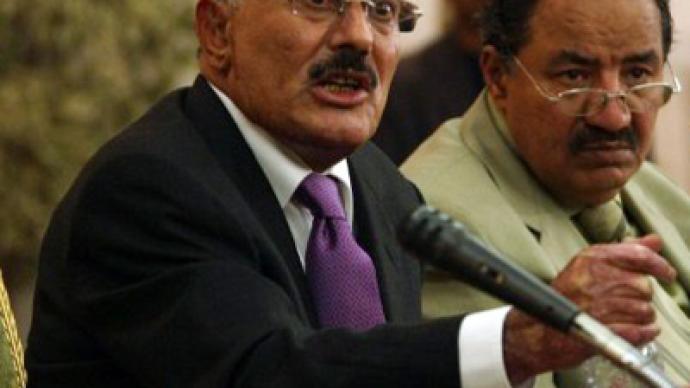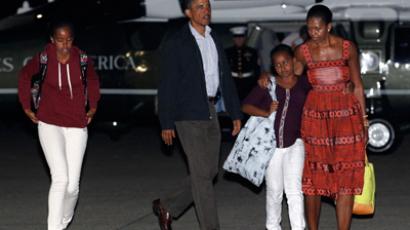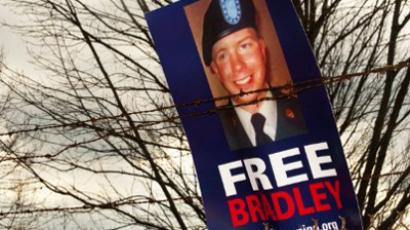Obama agrees to help Yemen’s murderous president

Protests in Yemen waged to take down President Ali Abdullah Saleh yielded nearly 2,000 deaths, mostly dished out by the leader himself, who opposed the citizens’ stab at their own Arab Spring in the wake of the Tunisian Revolution.
Now only months after unrest erupted and Yemenis took to the streets to try to collapse Saleh’s corrupt regime and unjust rule over the land, the estranged leader has found a friend in US President Barack Obama. The White House has revealed that they will allow Saleh to come stateside for medical treatment.President Saleh is expected in New York City as early as this week to undergo surgery to treat injuries he suffered earlier this year from an attack on his presidential palace. Protesters attempted to assassinate the president after he tried to rewrite the country’s constitution himself more than 30 years into ruling Yemen. While that blast didn’t bring down Saleh, his army revenged him by killing dozens of the opposing protesters after the assassination attempt waged at the ruled proved unsuccessful. Some now call Saleh a killer, and despite the death toll nearing the 2,000 mark, the Obama administration is allowing the president to come to the US for aid.“In the end, we felt there was enough good to be gained that it was worth managing the criticism that we’d get, including any comparisons to past episodes,” an official speaking on the condition of anonymity tells The New York Times. One episode the authority figure was undoubtedly referring to was former-President Jimmy Carter’s move in 1979 to let Iran’s Shah Mohammed Reza Pahlavi come to America for medical treatment. More than 30 years later, President Saleh himself is an Iranian sympathizer who has expressed support for Tehran’s controversial nuclear program. While that topic is turning tensions between Washington and the Arab Peninsula towards a tipping point, the official adds to the Times that, ideally, removing Saleh from overseas will calm the unrest that is accelerating the violence.“The main goal is to remove him physically from Yemen so there’s no way he can meddle in the political process there,” the official said. “Getting him medical treatment seemed a logical way to do this.”To the New York Daily News, an official from overseas said that the decision to bring President Saleh to America was decided by the ruler himself. “Nothing is formalized, but President Saleh has received treatment in the past in both New York City and in DC,” added the official.














